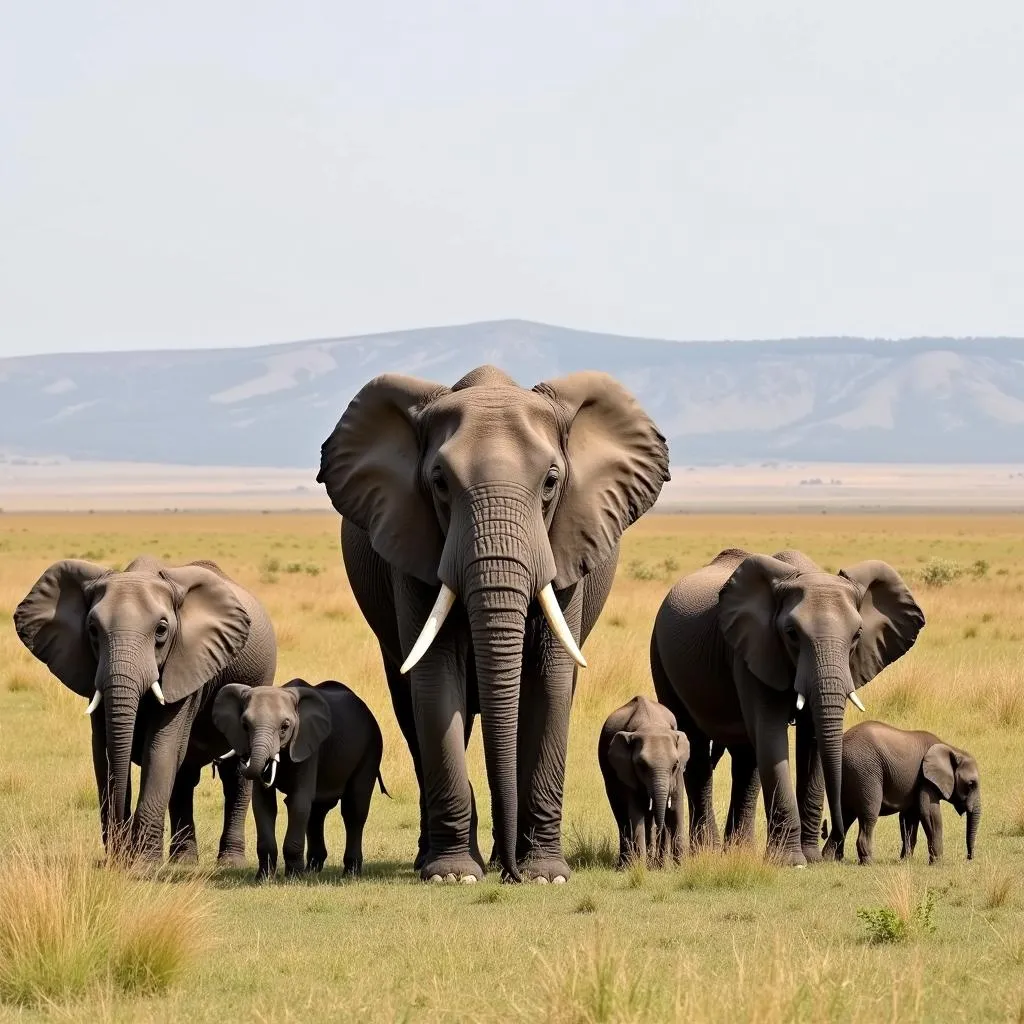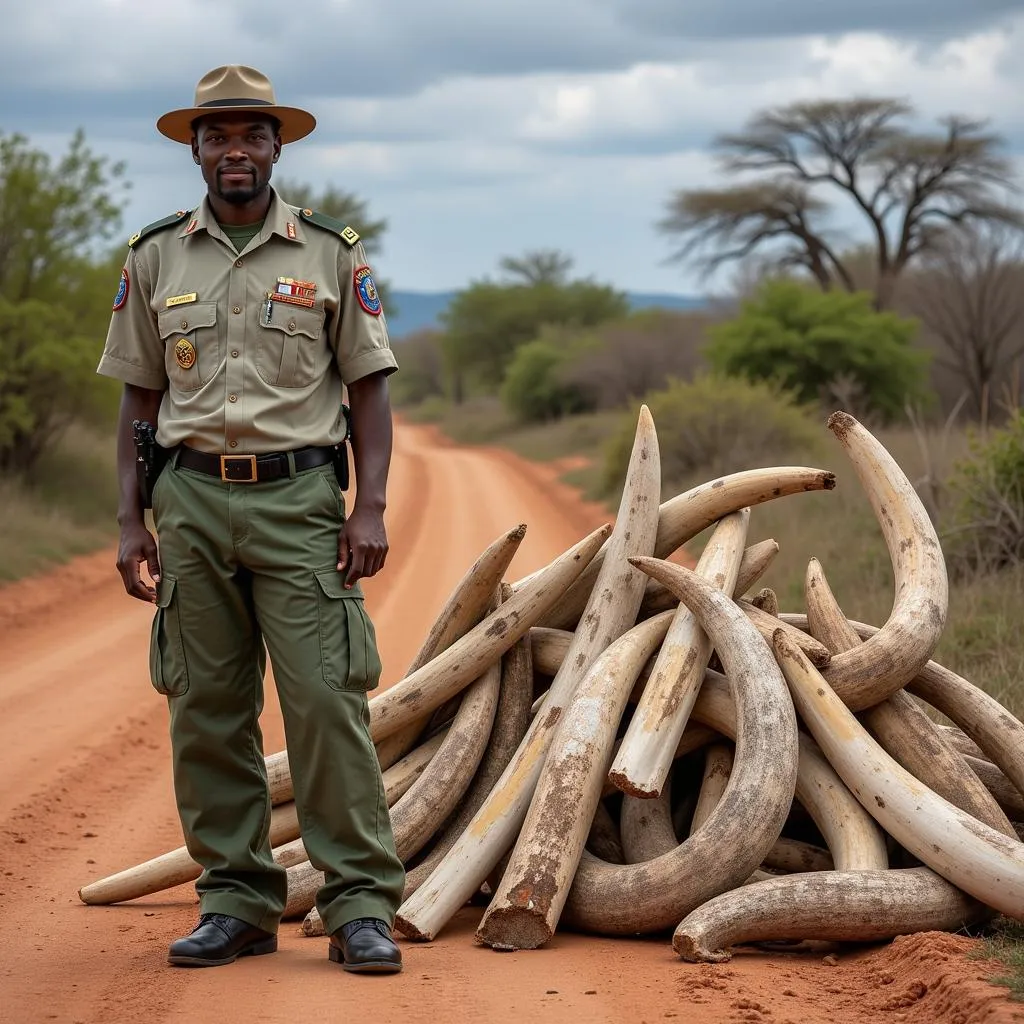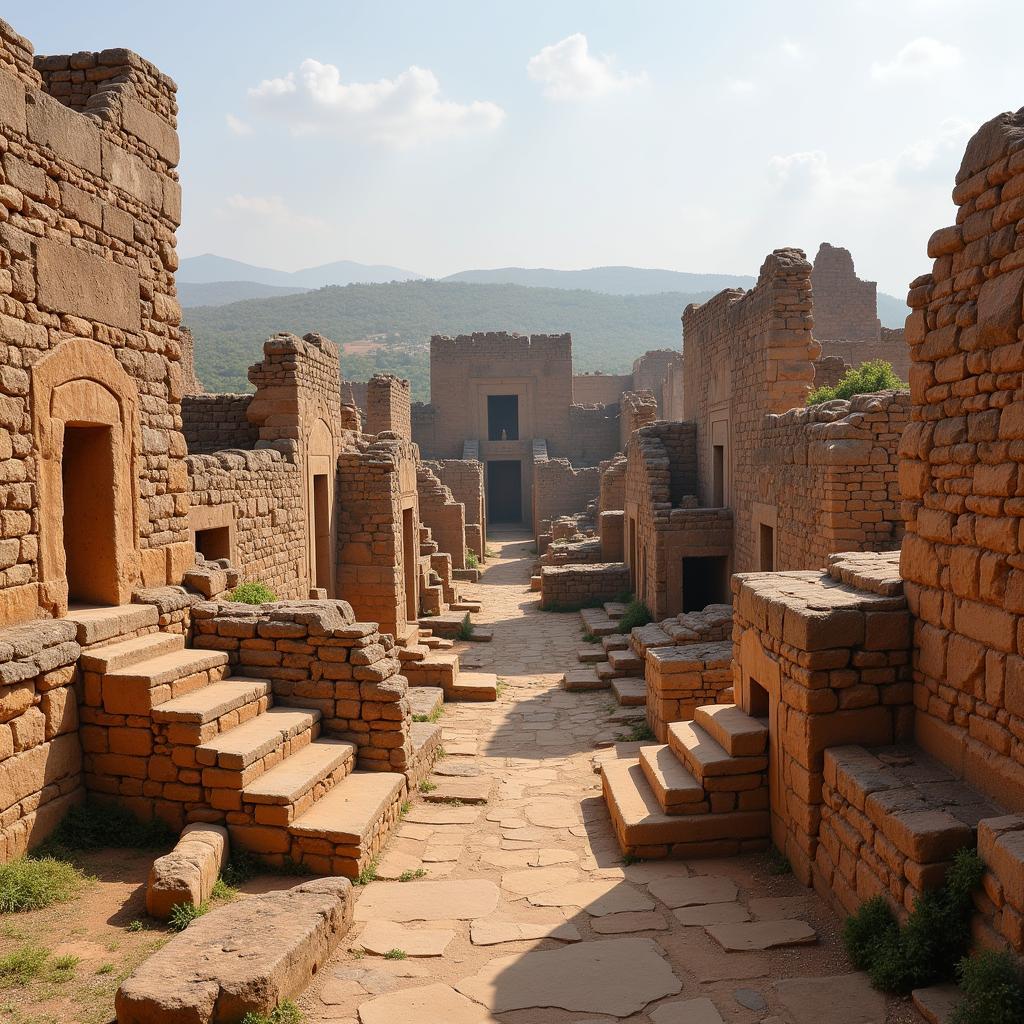African Elephant Hunting Videos: A Controversial Topic Explored
The search for “African Elephant Hunting Videos” often leads to a controversial and emotionally charged debate. While some seek such content for entertainment or to fuel their hunting aspirations, others stumble upon it out of curiosity or a desire to understand the complex issues surrounding elephant conservation and the impact of hunting. This article delves into the ethical, ecological, and social implications of elephant hunting in Africa, shedding light on the various perspectives surrounding this sensitive issue.
 African elephant family roaming the savanna
African elephant family roaming the savanna
The Appeal and Dangers of African Elephant Hunting Videos
For some, videos depicting elephant hunts offer a glimpse into a world often romanticized as adventurous and primal. The sheer size and power of elephants, coupled with the perceived danger involved in hunting them, can be alluring to a certain audience. These videos often portray the hunt as a test of skill and bravery, with hunters seeking trophies to commemorate their conquests.
However, the reality of elephant hunting is far more complex than these videos often suggest. Many conservationists and animal welfare advocates argue that such content normalizes and glorifies the killing of endangered species. They highlight the cruelty involved in hunting, particularly trophy hunting where specific animal parts are targeted, and emphasize the devastating impact it can have on elephant populations already facing threats from habitat loss and poaching.
 Anti-poaching ranger with confiscated ivory
Anti-poaching ranger with confiscated ivory
The Ethics of Elephant Hunting: A Global Discussion
The debate over elephant hunting is often polarized, with strong opinions on both sides. Pro-hunting advocates, including some conservation groups, argue that regulated hunting can contribute to conservation efforts. They claim that revenue generated from hunting permits can fund anti-poaching patrols, habitat protection initiatives, and community development projects in areas where elephants roam. Additionally, they posit that well-managed hunting can help control elephant populations, preventing overgrazing and potential conflicts with humans.
Opponents counter that killing elephants for sport or trophies is morally reprehensible, especially considering their intelligence, complex social structures, and vital role in maintaining ecosystem balance. They argue that the economic benefits of hunting are often overstated and that alternative forms of tourism, such as wildlife watching and photography safaris, offer more sustainable and ethical ways to support conservation and local communities.
The Future of Elephants and the Role of Responsible Tourism
The future of African elephants hinges on our collective responsibility to protect them. While the debate surrounding hunting is likely to continue, it’s crucial to prioritize conservation efforts that ensure the long-term survival of these magnificent creatures.
Tourists have a significant role to play in shaping the future of elephant conservation. By supporting ethical tourism operators, respecting wildlife and their habitats, and advocating for responsible policies, we can contribute to a future where elephants continue to thrive in the wild, not just on our screens.
Frequently Asked Questions about African Elephant Hunting Videos
- Why do people watch African elephant hunting videos? People have different motivations, ranging from curiosity about wildlife to seeking entertainment or information related to hunting. However, it’s crucial to be aware of the ethical implications and potential biases presented in such content.
- Is elephant hunting legal in Africa? The legality of elephant hunting varies across different African countries and often involves strict regulations, quotas, and permit systems. Some countries have banned hunting altogether, while others allow it in limited forms, often citing conservation or economic reasons.
- What are the arguments for and against elephant hunting? Proponents argue that regulated hunting can generate revenue for conservation, control elephant populations, and benefit local communities. Opponents contend that it’s ethically wrong, harms elephant populations, and that alternative tourism models offer more sustainable solutions.
- How can I contribute to elephant conservation? Support ethical tourism operators, spread awareness about elephant conservation, donate to reputable organizations working to protect elephants, and advocate for responsible policies and practices.
Need more information?
For additional resources and insights into African wildlife, culture, and conservation, explore our other articles:
We encourage you to join the conversation and share your thoughts on this crucial topic. Contact us for any inquiries or assistance you may need.


